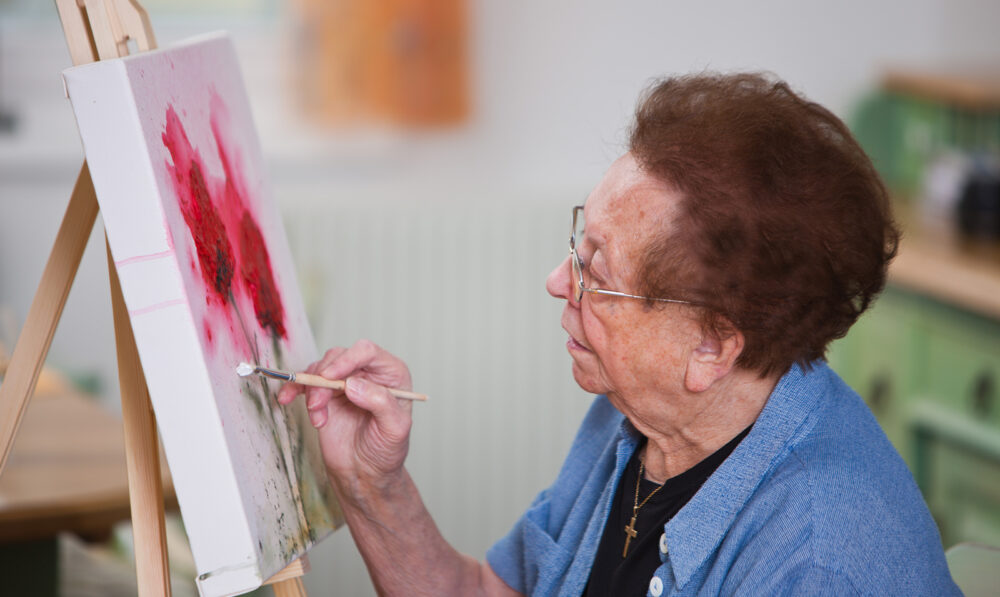The National Institute of Health estimates that 6.9 million Americans age 65 and older live with Alzheimer’s dementia. While Alzheimer’s disease is the most common dementia diagnosis, there are a full range of dementia diseases including frontotemporal, Lewy body and vascular dementia that aren’t included in that statistic.
Dementia and memory loss affect far too many seniors and that’s what these numbers don’t show – the very real human impact that memory loss and dementia have on people and their families.
At some point, as a loved one’s memory loss progresses, the question must be asked: what is memory care and is it time to explore this option?
What is memory care, exactly?
Memory care is a range of services provided to meet the specific and diverse needs of individuals experiencing memory loss or dementia. These services can be in a specific unit, neighborhood or stand-alone residential facility that provides care for people living with significant memory loss, Alzheimer’s disease or other forms of dementia. There are also memory care programs that align with assisted and independent living in senior communities.
Loved ones in residential memory care receive the same support as in assisted living – that is, help with bathing, dressing and mobility as needed – but also have specialized support for memory issues. This support includes living in a safe, structured environment with programs and activities tailored to meet the needs of residents living with dementia.
For people with moderate to severe memory loss, residential memory care, like Country Meadows Connections Memory Support Services™ neighborhood, also offers several levels of security, including locked doors and elevators that require a code to run, but also secured garden and outside areas and large interior common areas for residents to have fluidity in socializing and recreation . The purpose is to keep residents safe from “wandering.” According to the Alzheimer’s Foundation, about six in 10 people who live with dementia will wander, meaning they become lost and confused about their location, at least once. Wandering can happen at any stage of dementia disease, and is sometimes the event that compels families to ask: what is memory care?
What is a memory care program outside of a secure neighborhood?
Many people don’t start out in a secured (locked doors and coded elevators) living area. Often, residents who have some memory issues move into an assisted living apartment where they can take advantage of programs and activities tailored to them. Sometimes a loved one is already in an apartment in a senior community when memory issues start to become a concern.
What is memory care under those circumstances?
At Country Meadows we invite seniors with mild memory loss to join the Connections Club.
Connections Club is a memory care program designed to alleviate feelings of frustration and anxiety that accompany early-stage memory loss.
Staff in our campuses proactively identify gradual changes in a resident’s cognition and behaviors and, when memory becomes a concern, introduces the resident to Connections Club. The goal is for residents to stay in, and enjoy, their current living situation. A program manager works with each club member individually to develop a personalized plan for support. Using this memory care plan, our Connections Club team members act as a personal coach to help each resident overcome challenges and live life fully.
Routine is extremely important to people with dementia or other memory issues. A good memory care program will provide familiar and enjoyable routines and activities, which is both comfortable and calming, and is exactly what we do for our Club members.
Activities, naturally, depend on where a resident is on their journey. Each person in memory care is on their own unique path, and it’s important to understand where they are. The Validation Method, in which our staff who work in memory care are trained, is a person-focused way of communicating with someone who has dementia and memory loss. The concept is that rather than trying to bring the person with memory loss back into our reality, it’s better to enter their reality. This helps reduce anxiety and can resolve worries that may keep a resident who has memory loss from enjoying social interactions.
Activities and social engagements that loved ones in a memory care program can enjoy with friends, family and staff include:
- Jigsaw puzzles
- Painting with watercolors
- Flower arranging or crafts
- Gardening
- Listening to favorite music/record albums or playing an instrument
- Reminiscing or sharing family history
- If the weather cooperates, an outdoor walk
If you are concerned about your loved one and wondering, “what is memory care?” we are happy to answer any questions you have. We have resources available on our website that address a number of concerns, including a short memory quiz and informative articles that discuss when it is time for a memory support program, plus other helpful information that may be of interest in our Resource Center.
Learn more about how Country Meadows helps seniors in memory care with the challenges and joys of daily living. Feel free to call or email us with questions. Our co-workers are here to help.



